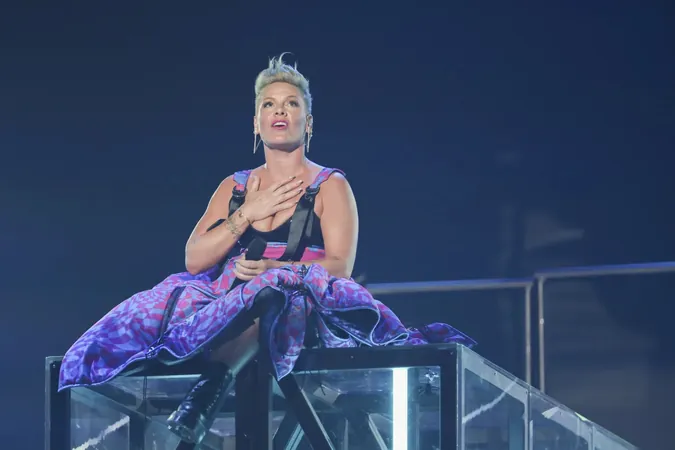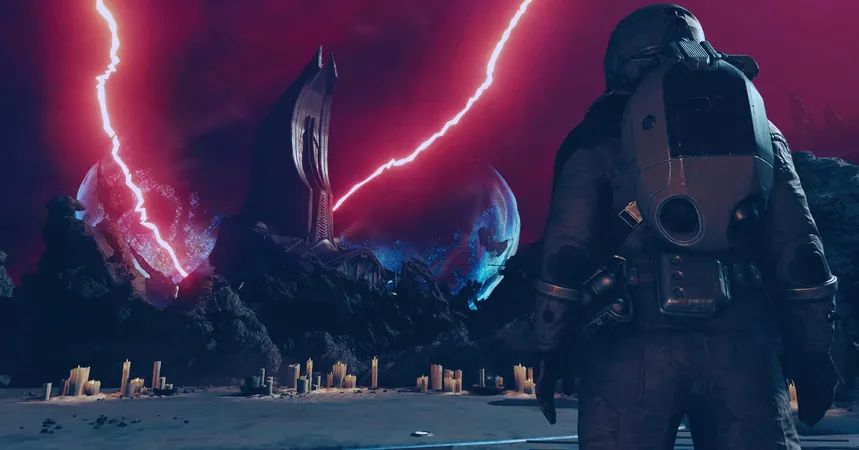
Robert Downey Jr. Takes the Stage: A Bold Broadway Debut in 'McNeal'
2024-10-01
Author: Ming
In a groundbreaking theatrical experiment that merges the realms of artificial intelligence and traditional storytelling, Robert Downey Jr. is set to shine in the new play "McNeal," directed by Bartlett Sher. This performance not only marks Downey’s serious foray into Broadway after a career dominated by superhero roles—most notably as Iron Man—but also raises pertinent questions about the intersection of technology and creativity.
The Storyline
Written by Ayad Akhtar, "McNeal" tells the story of Jacob McNeal, an acclaimed author who grapples with personal demons, societal pressures, and the challenges posed by modern technology. The character of McNeal mirrors Downey’s on-screen persona, combining charm and complexity while tackling themes that resonate deeply with contemporary audiences: addiction, family trauma, and the ever-looming question of how technology is reshaping human creativity.
Visual and Thematic Elements
The visually striking set features a monumental projection of an iPhone, immediately hinting at the play's exploration of technology. Within minutes of the performance, it becomes clear that McNeal is not merely wrestling with his personal issues; he is also engaging with the rise of AI and its implications for writers and artists. In a memorable scene, McNeal admits to having used an AI chatbot to draft his Nobel Prize acceptance speech, prompting viewers to ponder the ethical implications of authorship in an era of generative AI.
Downey's Performance
Downey commands the stage with an engaging performance that oscillates between humor and gravitas. He navigates McNeal’s witty remarks about literary giants while also confronting the existential crises born from his character's introspections. However, critics note that some scenes, such as the emotionally charged interaction with McNeal's son, fall short of their dramatic potential, lacking the depth the subject matter demands.
Critical Reception and Themes
Akhtar is known for his intricate explorations of societal systems, and his attempt to dissect the implications of AI in "McNeal" is both ambitious and flawed. While the play cleverly references the relationship between literary creation and artificial intelligence, it stops short of a thorough critique, leaning instead on clichés that could resonate with broader audiences but miss the mark for deeper inquiry.
Technological Innovations
The production also makes use of innovative technology, including a digital composite of McNeal that raises eyebrows about the future of human performance and digital reproduction. What does it mean for an actor's presence on stage if a computer can replicate their image? This question, among others, lingers as part of the larger dialogue provoked by "McNeal."
Final Thoughts
In a thought-provoking finale, Downey delivers a speech infused with lines generated by a chatbot, mirroring Shakespeare's own eloquence. While some audience members are captivated by the novelty, the critical consensus suggests that the synthesized language lacks the profound creativity that characterizes true artistic genius, leaving a sense of hollowness in its wake.
"McNeal" is a bold statement about the evolving landscape of theater, creativity, and the philosophical quandaries posed by emerging technologies. As audiences flock to Lincoln Center Theater, one question stands central: In a world increasingly influenced by AI, what does it mean to create art that truly speaks to the human experience? This production certainly stirs the pot, leaving viewers both entertained and contemplative about the future of human expression in the age of technology.







 Brasil (PT)
Brasil (PT)
 Canada (EN)
Canada (EN)
 Chile (ES)
Chile (ES)
 España (ES)
España (ES)
 France (FR)
France (FR)
 Hong Kong (EN)
Hong Kong (EN)
 Italia (IT)
Italia (IT)
 日本 (JA)
日本 (JA)
 Magyarország (HU)
Magyarország (HU)
 Norge (NO)
Norge (NO)
 Polska (PL)
Polska (PL)
 Schweiz (DE)
Schweiz (DE)
 Singapore (EN)
Singapore (EN)
 Sverige (SV)
Sverige (SV)
 Suomi (FI)
Suomi (FI)
 Türkiye (TR)
Türkiye (TR)